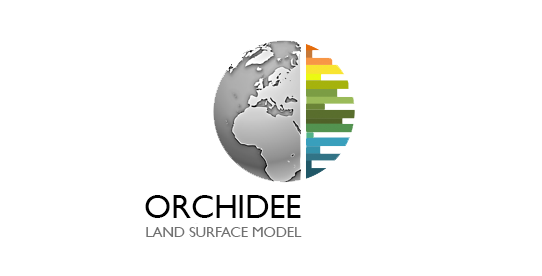| | 4 | == Why a new version of ORCHIDEE ? == |
| | 5 | |
| | 6 | In ORCHIDEE, the vegetation is currently represented by 13 Plants Functional Types or PFTs. |
| | 7 | As these PFTs follow the same processes, they share the same set of parameters. |
| | 8 | (PS: that explained why the parameters in ORCHIDEE are under the shape of an array of 13 values.) [[BR]] |
| | 9 | |
| | 10 | The values of the parameters are different according to the PFTs. Moreover, many of these values |
| | 11 | are empirical and may differ according the papers. What happens if you want to change a value |
| | 12 | of a parameters and want to see the changing involved by the modification? You have to find the |
| | 13 | parameter in the code, then change the value and to finish, you have to recompile ORCHIDEE.[[BR]] |
| | 14 | |
| | 15 | |
| | 16 | Moreover, 13 is a too restricted number for representing the PFTs. At the global scale, it is sufficient but at the |
| | 17 | regional scale, you are unable to represent the variability of the vegetation.[[BR]] |
| | 18 | |
| | 19 | The "externalisation" of the parameters of ORCHIDEE will allow us to solve these two problems. |
| | 20 | |
| | 21 | |
| | 22 | == Technical characteristics == |
| | 23 | |
| | 24 | The externalized version of ORCHIDEE is build on the AR5 version of ORCHIDEE (tag 1.9.5, CVS version 1.11.22). |
| | 25 | |
| | 26 | |
| | 27 | With this version, the user has the possibility to choose a number of PFTs between 2 and X (X is any number, but |
| | 28 | a max value could be 94, corresponding to the Olson classification) and to change the values of less or more 300 |
| | 29 | new parameters (plus the already externalized ones in the AR5).[[BR]] |
| | 30 | |
| | 31 | |
| | 32 | == The concept of Metaclass == |
| | 33 | |
| | 34 | How did we solve the problems outlined in the section "What a new version of ORCHIDEE?" ? [[BR]] |
| | 35 | We use an formal concept called Metaclass(MTC in the following) based on an idea of N.Viovy.[[BR]] |
| | 36 | |
| | 37 | === What is a Metaclass? === |
| | 38 | |
| | 39 | It consists of an overlayer of the current PFTs. Here is the list of the MTCs implemented in the ORCHIDEE "externalizes" version : |
| | 40 | |
| | 41 | |
| | 42 | |
| | 43 | |
| | 44 | === How does it work? === |
| | 45 | Basically, it will initialize all the pft-parameters by default values by linking a PFT to a MTC. |
| | 46 | |
| | 47 | |
